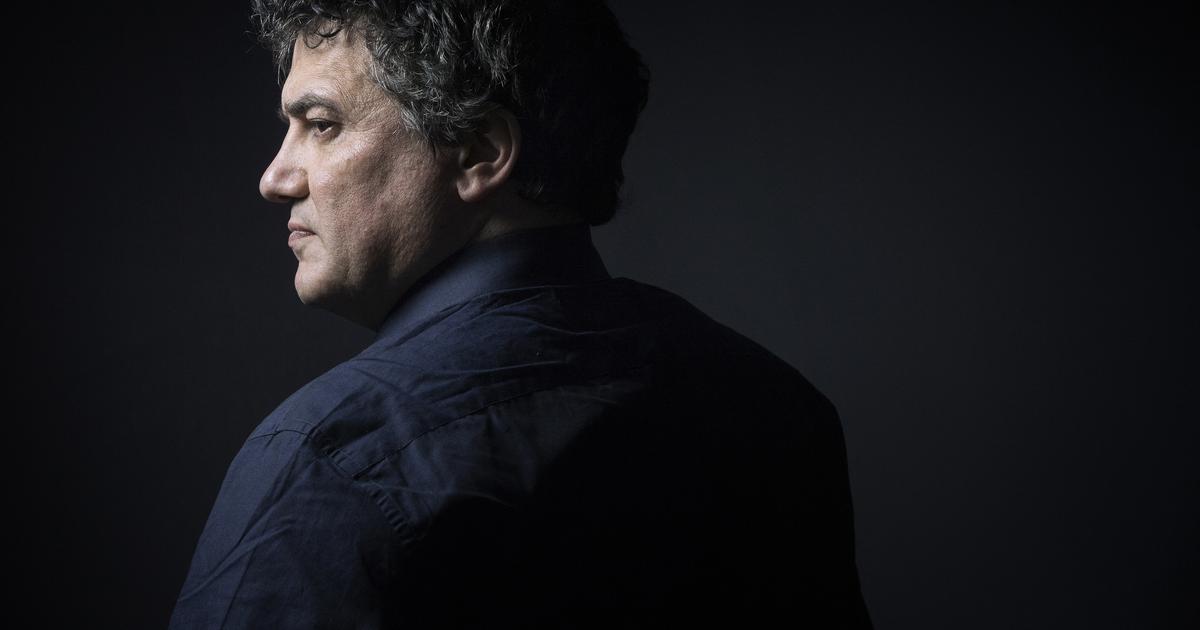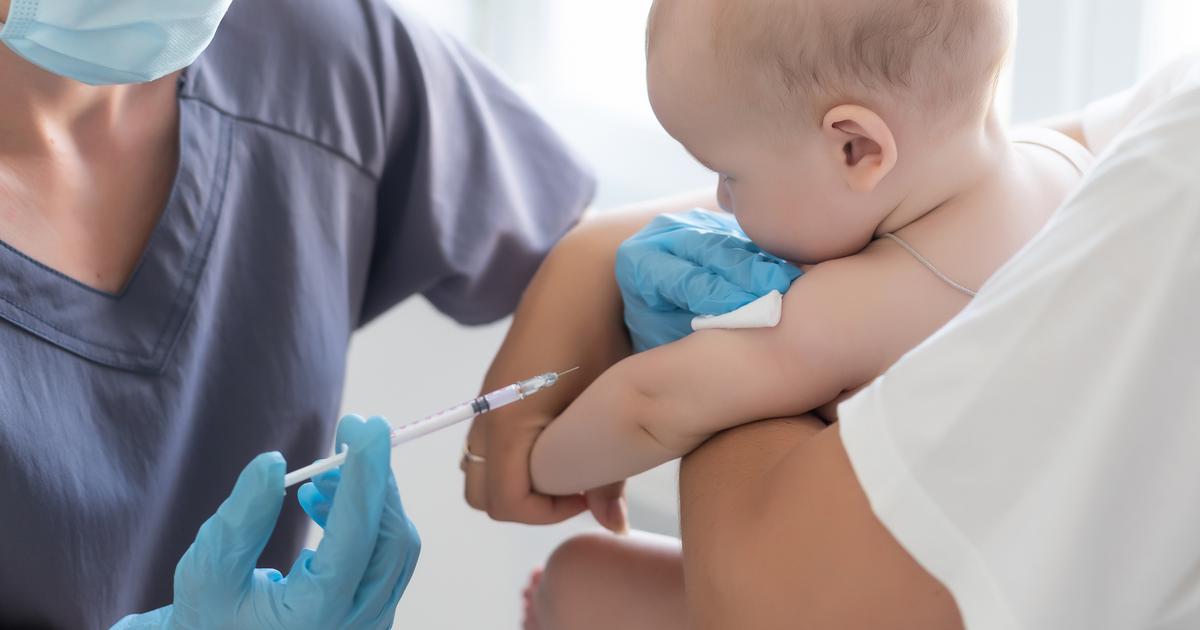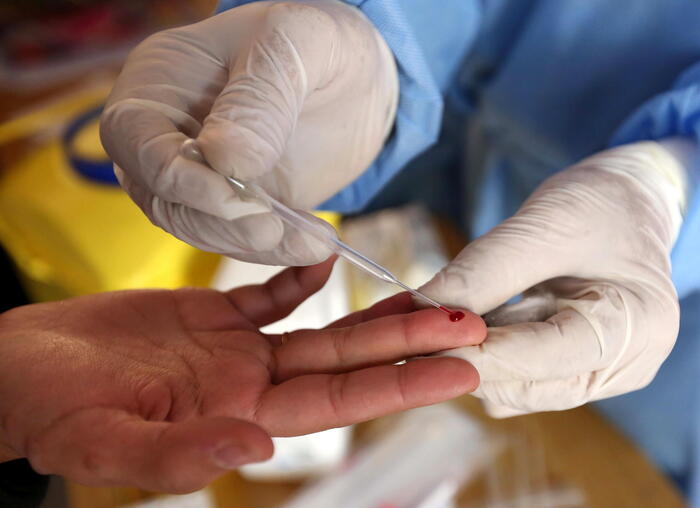Enlarge image
A nurse prepares a test to detect monkeypox: 'Our world is becoming increasingly vulnerable to infectious disease outbreaks'
Photo: Carlos Luján / EUROPA PRESS / picture alliance / dpa
What is monkey pox?
Monkeypox is an infectious disease originally transmitted from animals to humans primarily by viruses.
In Africa, monkeypox has been found in a wide variety of animals, most notably rodents and several species of monkeys.
The virus can also be passed from person to person.
Monkeypox causes a rash, fever and inflammation in the genital and anal regions, but the disease is usually not fatal.
In 1970, monkeypox was first detected in humans in Zaire, now the Democratic Republic of the Congo—a region where smallpox had been eradicated two years earlier.
In the spring of 2003, the first cases were reported outside of Africa, in the United States.
Since May they have also been spreading to other countries;
especially in Western Europe, including Germany.
How does the WHO act?
The World Health Organization (WHO) on Saturday declared the monkeypox outbreak an "emergency of international concern" - the highest alert level it can declare.
So far, it has only been proclaimed six times - most recently in January 2020 due to the rapid spread of the then novel coronavirus Sars-CoV-2 - this happens in the event of a "serious, sudden, unusual and unexpected" health problem that can spread to other countries.
At an emergency meeting on monkeypox in June, the experts advised WHO Secretary-General Tedros Adhanom Ghebreyesus not to declare the highest alert level.
Since then, however, the cases of infection have continued to spread.
Tedros said he was “concerned” about the increase in cases at a nearly six-hour meeting on Thursday.
Tedros said the monkeypox outbreak was "focused on men who have sex with men, especially those with multiple sex partners."
Accordingly, the spread can be stopped “with the right strategies”.
The WHO chief called on all countries to take measures to protect those affected.
What are the implications of the WHO classification?
Initially, this has no practical consequences.
The classification as an “emergency of international concern” is intended to encourage the governments of the member countries to take measures to contain the outbreak.
They are intended to sensitize doctors and clinics, take protective measures in suspected cases and educate the population on how to protect themselves from infection.
Depending on the disease, the WHO sets up emergency committees, which are staffed with different experts.
In addition to Covid-19, there has also been an emergency situation due to polio outbreaks since 2020 (since 2014).
Completed emergencies included outbreaks of H1N1 swine flu (2010), Zika virus (2016), and Ebola (2014-2016 and 2019).
What measures must the Germans expect now?
In the case of monkeypox, the population does not have to prepare for such measures as with the corona pandemic.
While the coronavirus spreads through aerosols with viral particles that infected people expel when they breathe, speak or cough, monkeypox infections are usually caused by sexual contact according to the current state of knowledge.
What is the current status of distribution?
To justify the decision, a WHO statement said there was “a clear risk” of further international spread.
However, Europe is currently the only area in the world where the risk of infection is rated as high, said WHO Secretary-General Tedros.
On Saturday, he named the number of more than 16,000 confirmed cases in more than 60 countries, many of which previously had virtually no monkeypox cases.
A total of five people died.
There were over 240 cases in six African countries where the virus has previously infected humans.
In Germany, the Robert Koch Institute reported almost 2,300 cases on Friday.
The US agency CDC has created a dynamic world map of the spread of monkeypox.
According to the CDC, only the USA (2890) and Spain (3125) had more cases than Germany as of Sunday morning.
The UK (2208) and France (1567) are also among the most affected globally.
What symptoms can occur?
The symptoms are similar to those of smallpox.
These include fever, headache and muscle pain, chills and swollen lymph nodes.
Sometimes very painful skin changes develop in the form of spots and pustules, which crust over and fall off over time.
The rash mainly appears on the face, palms and soles of the feet.
However, skin and mucous membrane changes in the mouth, genitals and eyes are also possible.
The skin changes usually last between two and four weeks and heal on their own without treatment.
How exactly is the disease transmitted?
more on the subject
Almost only men affected: meanwhile around 2000 cases of monkeypox in Germany
Scarce vaccines: Stiko recommends one dose of monkeypox vaccination first
Doctor about monkeypox: »The time when you could have stopped the virus completely is over« An interview by Veronika Hackenbroch
Humans can contract the virus through contact with the blood and other bodily fluids of sick animals.
Transmission from person to person is only possible with close contact.
The virus is transmitted through droplet infection, wounds, the contents of the blisters and scabs on the skin or body fluids such as saliva.
According to a study, 95 percent of current monkeypox cases are due to sexual contact.
The cases reported in Germany almost exclusively concerned men who had sexual contact with other men.
Only a handful of cases in women are known in this country.
Pregnant women who have contracted monkeypox can pass the virus on to their unborn child.
An infection of the baby is also possible at birth.
According to the CDC, two cases in children have now been confirmed in the United States.
How dangerous is monkeypox?
Symptoms usually last two to four weeks.
Infected people can infect others as long as they have symptoms.
In contrast to human smallpox, which has been eradicated since 1980, monkeypox is usually much milder;
most people recover within several weeks.
However, severe courses can also occur in some of those affected.
In particular, newborns, children, pregnant women, the elderly and people with immune deficiencies can become seriously ill.
Possible complications include skin infections, pneumonia, confusion, and eye infections that can lead to vision loss.
The amount of viruses to which a patient has been exposed also plays a role in the course of the disease.
Is there a therapy or vaccination?
First and foremost, symptoms are treated.
A drug developed to treat so-called orthopox was recently approved in the EU for monkeypox as well.
The general smallpox vaccine has also been shown to be 85 percent effective against monkeypox.
However, since the disease has been eradicated for over 40 years, there has been no vaccination against smallpox for a long time.
In Germany, vaccination with the smallpox vaccine Imvanex, which has been approved in the EU since 2013 and is better tolerated than older smallpox vaccines, is recommended for certain risk groups such as homosexual men with frequently changing partners.
According to RKI estimates, around 130,000 people in Germany have an indication for vaccination against monkeypox.
However, there is currently a lack of vaccine doses.
How are researchers reacting to the outbreak?
“Our world is becoming increasingly vulnerable to infectious disease outbreaks,” said Josie Golding, chief epidemiologist at the Wellcome Trust.
The classification should remind government leaders of the current weaknesses of the global community to meet such challenges.
"As monkeypox cases continue to rise and spread to more countries, we now face a dual challenge: an endemic disease in Africa that has been neglected for decades, and a new outbreak affecting marginalized groups," she wrote.
International cooperation must be strengthened.
Research must clarify why one sees new transmission patterns in monkeypox and what one can do about it.
“We cannot afford to wait for diseases to escalate before intervening.”
OJ/AFP/dpa















